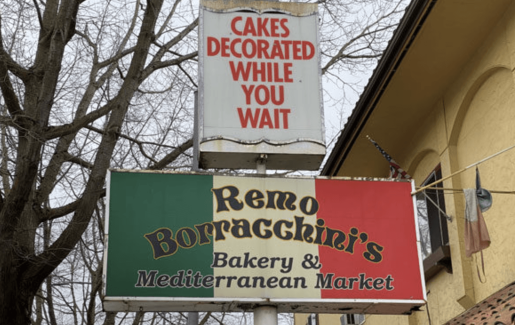Beloved Bakery Turns to Public Adjuster
Borracchini’s Bakery Challenged by Coronavirus and Fire
When the pandemic shut down a beloved Seattle neighborhood bakery that had been in business for over a century, the owners thought they had seen the worst of their troubles. However, when a fire claimed the vacant building a year later, they found that their challenges had multiplied.
... Although the building was insured, it seemed doubtful that I would be able to collect, given the intricacies of the insurance industry and the time commitment to do so. ... I had neither the time nor the inclination to spend countless hours ‘fighting’ with an insurance company for what I presumed would be a fruitless endeavor. ... The percentage fee I paid... was worth the peace of mind that I gained and the confidence I had that the process was being handled by professionals fully knowledgeable about the industry.
Description
Borracchini’s Bakery had been passed down from one generation to the next over its 100 years in the Rainer Valley neighborhood of Seattle, Washington. The once-thriving business was laid low by the COVID-19 pandemic, which forced its permanent closure in 2021. The owners put the vacant building up for sale later that year. They were in contract negotiations with a global franchise to purchase the property when a fire destroyed the building. As they grappled with this double disaster, the owners were introduced to Adjusters International by a family friend who was also a former client.
Issues
The insurance company asserted that the building had no value since it was scheduled to be demolished under a sales contract. In Washington State, although there is no case law definition, case law supports a finding that actual cash value is equivalent to fair market value. The insurance carrier’s initial offer included only the cost to tear down the structure.
The land that the building stood on was in contract to be sold, with the building considered a tear-down. The insurance company’s position was that they would pay market value, which was the cost to tear down the damaged structure. Adjusters International’s challenge was to determine how to calculate the value of a building considered to have no value.
Adjusters International identified an actual cash value endorsement in the policy. This endorsement would be key to a settlement plan.
The insurance company calculated the square footage of the building inaccurately, omitting an entire floor from the calculations. Proper valuation required a reassessment of the true square footage of the structure.
Solutions Applied
Experts in dissecting property insurance policies, the Adjusters International team flagged an endorsement in the policy that changed the basis of the calculation of actual cash value (ACV). The insurance policy defined ACV as replacement cost less depreciation; meaning that under their policy, the owners were entitled to far more than fair market value if they elected to settle the loss using ACV.
Based on this, negotiations changed significantly. The insurance carrier’s new offer was $300 per square foot at replacement. Adjusters International argued that true replacement cost would run $400-450 per square foot and additionally demonstrated that the carrier’s calculations had missed an entire floor of the building.
The carrier agreed to the recalculation of square footage and ultimately agreed to a $400 per square foot replacement cost valuation.
The calculated replacement cost tallied more than $2 million and, following applicable depreciation, exceeded the $1.7 million insurance carried. The owners received the full $1.7 million in insurance coverage and also continued with the sale of the property, at the original agreed price.
Outcome
The careful assessment of the Borracchini’s insurance policy resulted in a dramatically different result in the amount of the claim. The carrier’s initial offer was for fair market value, nothing more than the cost to demolish the building. The bakery owners received $1.7 million from the insurer and were also able to sell the property as they had planned.

